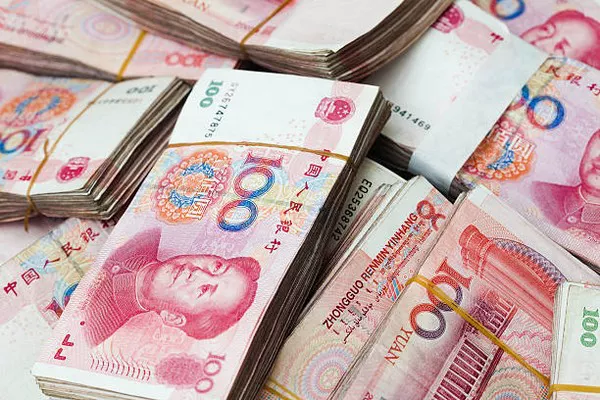Introduction The valuation of a currency is a critical aspect of a nation’s economic health, impacting its trade balance, foreign investments, and overall economic stability. Among the currencies that attract attention on the global stage is the Chinese Yuan (CNY). In recent years, debates have ensued regarding whether the CNY is undervalued, prompting economists and policymakers to delve into intricate analyses to ascertain its true worth. This article aims to provide a comprehensive examination of the factors influencing the valuation of the Chinese Yuan and assess whether it is indeed undervalued.
Historical Context
China’s economic rise over the past few decades has been nothing short of remarkable. From being a predominantly agrarian economy, China has transformed into a global economic powerhouse, becoming the world’s largest exporter and second-largest economy. Central to this transformation has been the deliberate policies pursued by the Chinese government, including the management of its currency.
For much of its recent history, China maintained a fixed exchange rate regime, pegging the value of the Yuan to the US Dollar (USD). However, since 2005, China has gradually shifted towards a more flexible exchange rate system, allowing the Yuan to appreciate in value against the Dollar. This move was partly in response to international pressure, particularly from the United States, which accused China of keeping its currency artificially low to gain an unfair advantage in trade.
Factors Influencing Yuan Valuation
Trade Surplus: China has consistently maintained a trade surplus, exporting more goods than it imports. This surplus exerts upward pressure on the Yuan’s value, as foreign buyers need to purchase Yuan to pay for Chinese goods, increasing demand for the currency.
Foreign Exchange Reserves: China holds the world’s largest foreign exchange reserves, primarily denominated in USD. These reserves provide a cushion against economic shocks and allow China to intervene in currency markets to stabilize the Yuan’s value.
Economic Growth: China’s robust economic growth has contributed to the perception of the Yuan as undervalued. Rapid industrialization and urbanization have fueled demand for Chinese goods and services, further strengthening the country’s trade position and currency.
Capital Controls: Despite moving towards a more flexible exchange rate regime, China still maintains strict capital controls to manage the flow of money in and out of the country. These controls influence the supply and demand for Yuan in international markets, affecting its valuation.
Political Considerations: Geopolitical tensions and trade disputes, particularly between China and the United States, can impact market sentiment and influence the valuation of the Yuan. Uncertainty surrounding trade policies and diplomatic relations can lead to fluctuations in the currency’s value.
Assessment of Undervaluation
While the factors mentioned above contribute to the complexity of Yuan valuation, assessing whether the currency is undervalued requires a nuanced approach. Several methodologies exist for evaluating currency valuation, each with its strengths and limitations.
Purchasing Power Parity (PPP): PPP theory suggests that exchange rates should adjust to equalize the prices of a basket of goods and services across different countries. By comparing the actual exchange rate to the PPP-implied exchange rate, economists can gauge whether a currency is undervalued or overvalued. However, PPP calculations often overlook factors such as productivity differences and non-tradable goods, limiting their accuracy.
Real Effective Exchange Rate (REER): REER adjusts nominal exchange rates for differences in inflation rates between countries, providing a more comprehensive measure of currency valuation. A low REER suggests that a currency may be undervalued relative to its trading partners, while a high REER indicates overvaluation.
Economic Fundamentals: Assessing a currency’s valuation based on economic fundamentals involves analyzing factors such as trade balances, interest rates, and growth prospects. A country with strong economic fundamentals is likely to have a currency that reflects its true value.
Market Sentiment: Market sentiment plays a crucial role in determining currency valuation, as investor perceptions can drive buying and selling decisions. Political developments, economic data releases, and geopolitical tensions can all influence market sentiment and impact currency prices.
Conclusion
The valuation of the Chinese Yuan is a multifaceted issue influenced by a myriad of economic, political, and market factors. While some argue that the Yuan is undervalued, citing China’s trade surplus and economic growth as evidence, others contend that the currency’s value accurately reflects its fundamentals.
Ultimately, determining whether the Yuan is undervalued requires a holistic analysis that takes into account various methodologies and considerations. While economic models and theories provide valuable insights, they may not capture the full complexity of currency valuation in practice. Moreover, the dynamic nature of global markets means that currency valuations can fluctuate rapidly in response to changing economic conditions and geopolitical events.
As China continues to play an increasingly prominent role in the global economy, the valuation of the Yuan will remain a topic of keen interest for economists, policymakers, and market participants alike. By conducting thorough analyses and remaining attuned to market dynamics, stakeholders can gain a deeper understanding of the factors shaping the value of the Chinese currency and its implications for the broader economy.


